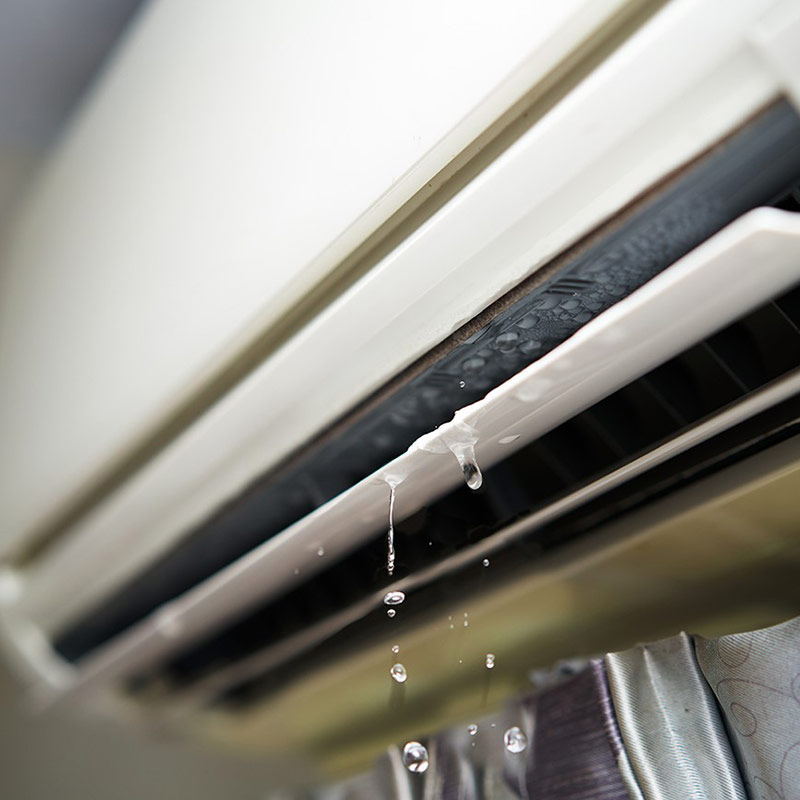When your HVAC system starts to leak, it’s more than just an inconvenience—it can have serious environmental consequences. Freon, a commonly used refrigerant, is harmful to both your system and the planet. While topping up the refrigerant might seem like a quick fix, it’s crucial to understand why replacing your HVAC system is often the better choice.
Understanding Freon and Its Environmental Impact
Freon is a brand name for a group of chemicals known as chlorofluorocarbons (CFCs) and hydrochlorofluorocarbons (HCFCs), which have been used in air conditioning systems for decades. These substances are effective at cooling, but they also have a significant downside: they are potent greenhouse gases. When they escape into the atmosphere, they contribute to ozone depletion and global warming.
The ozone layer acts as Earth’s sunscreen, protecting us from harmful ultraviolet (UV) radiation. When CFCs and HCFCs break down in the upper atmosphere, they release chlorine and fluorine atoms, which destroy ozone molecules. This not only increases UV radiation reaching the Earth but also contributes to climate change.
The Problem with Topping Up Refrigerant
When your HVAC system is leaking Freon, the immediate response might be to top up the refrigerant. However, this approach is akin to putting a Band-Aid on a broken pipe. Adding more refrigerant does not address the root cause of the leak, which means the problem will likely persist and may worsen over time.
Moreover, topping up refrigerant is a temporary solution that does not prevent further leakage. Each time you add more Freon, you’re releasing more harmful chemicals into the environment. It also means your system is less efficient, leading to higher energy consumption and increased costs.
Why Replacement is the Better Solution
- Environmental Protection: Replacing your old HVAC system with a newer, more efficient model is one of the most effective ways to reduce your environmental footprint. Modern systems use alternative refrigerants that are less harmful to the ozone layer and have a lower global warming potential (GWP). By choosing an eco-friendly model, you’re directly contributing to the protection of the environment.
- Improved Efficiency: Newer HVAC systems are designed to be more energy-efficient. They use advanced technology to cool your home more effectively while consuming less energy. This not only reduces your utility bills but also lessens your overall carbon footprint.
- Enhanced Performance: Old systems often suffer from diminished performance due to wear and tear. A new system can provide better air quality, consistent temperatures, and improved comfort. It’s a long-term investment in your home’s climate control and overall efficiency.
- Cost Savings: While the initial cost of replacing an HVAC system might seem high, it’s worth considering the long-term savings. New systems are generally more reliable, have fewer repair needs, and lower operating costs due to their efficiency. Over time, these savings can offset the cost of replacement.
- Regulatory Compliance: Many regions have regulations regarding the handling and disposal of Freon and other harmful refrigerants. By replacing your old system, you ensure compliance with these regulations and avoid potential fines or penalties.
Steps to Take
If you suspect your HVAC system is leaking Freon, here are the steps you should take:
- Get a Professional Inspection: Have a certified HVAC technician assess the situation. They can determine the severity of the leak and recommend whether a repair or replacement is necessary.
- Consider a Replacement: If your system is old and leaking refrigerant, replacing it with a modern, eco-friendly model is often the best option.
- Proper Disposal: Ensure that the old system is disposed of properly. Professional HVAC technicians will handle the recovery and disposal of Freon in accordance with environmental regulations.
- Regular Maintenance: To avoid future issues, schedule regular maintenance for your new system. This can help catch potential problems early and keep your system running efficiently.
The takeaway:
Replacing your HVAC system when it’s leaking Freon is not just about improving comfort—it’s a crucial step in protecting the environment. By investing in a new, energy-efficient system, you’re reducing your carbon footprint, supporting ozone layer recovery, and contributing to a healthier planet. So, while topping up the refrigerant might seem like an easy fix, opting for replacement is a more responsible and sustainable choice. Contact us today for all your HVAC repair and replacement needs!

